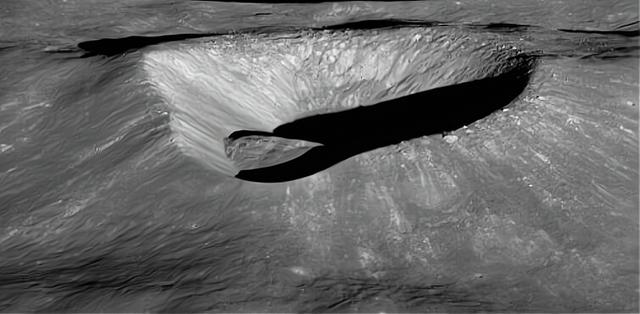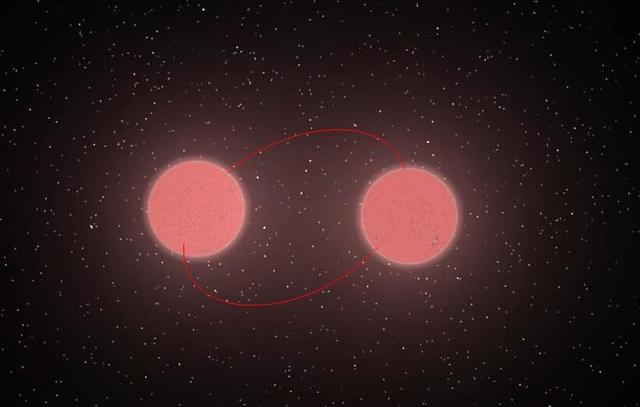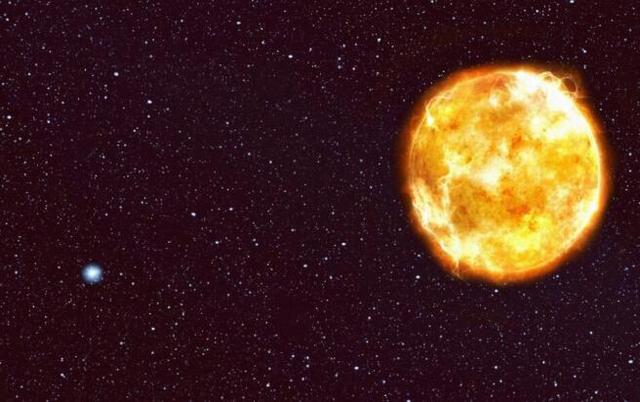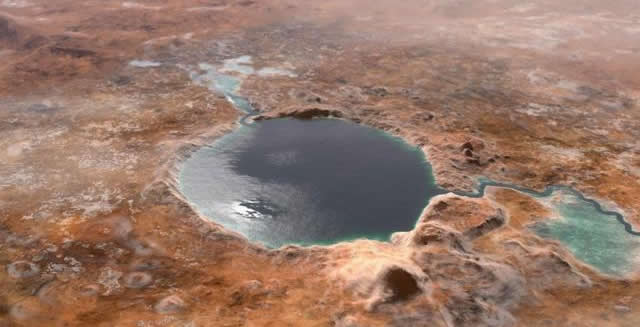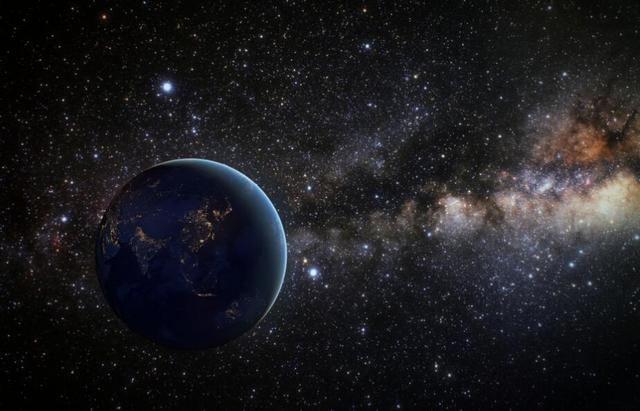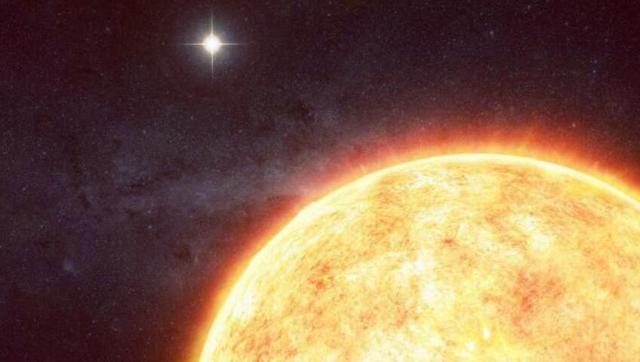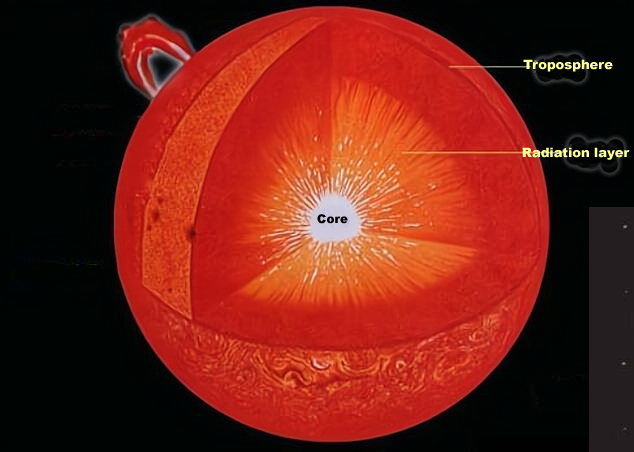- Beauty
According to the "Great collision theory", a planet about the size of mars, theia, collided with the primordial earth some 4.5 billion years ago. During the violent collision, theia's outer layers were pulverised and its hard core was incorporated into the earth, while the mass of debris spilled from the collision orbited the earth by its gravity and gradually gathered to form the moon.
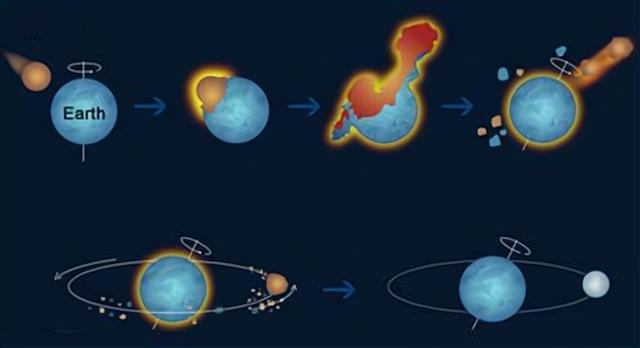
Because of its relatively small mass, the moon could not maintain the high temperature of its core for long, so within hundreds of millions of years of its formation, the moon's core cooled completely and since then it has been a "Dead" Planet, with no geological activity in its interior. In this case, the craters made by small bodies on the moon could be preserved for a long time.
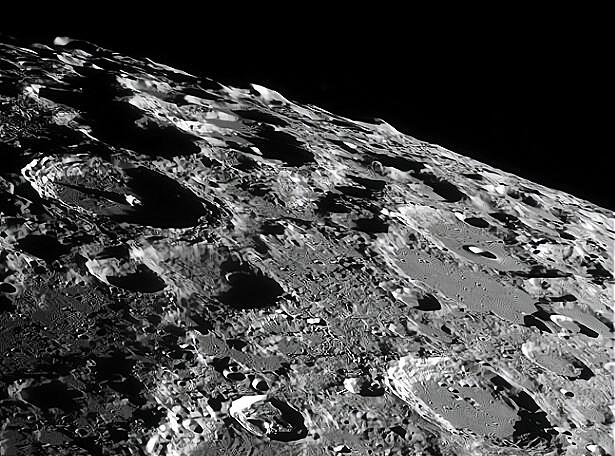
After billions of years of accumulation, the moon is now littered with craters (note: Most of these craters are from the "Late heavy bombardment" Period, 3.8 to 4.1 billion years ago), which are generally nearly circular in shape, but one crater is an "Anomaly". It is also known as the most mysterious crater on the moon.
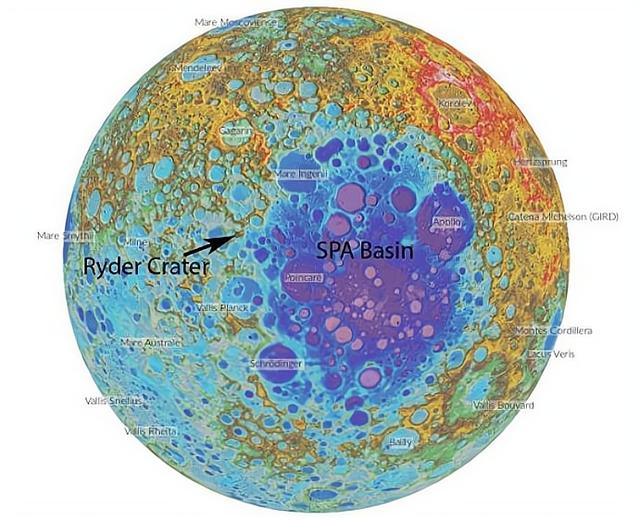
The crater is located near the moon's south pole-aiken basin and is named after the late lunar scientist graham ryder. The crater is named after the late lunar scientist graham ryder and is known as "Ryder" Crater.
Exploration data show that crater ryder has an unnatural oval shape, with long and short axes of about 17 km and 13 km respectively, and, more mysteriously, a giant structure in the middle of the crater, with a height difference of about 1.5 km on either side of the giant structure.
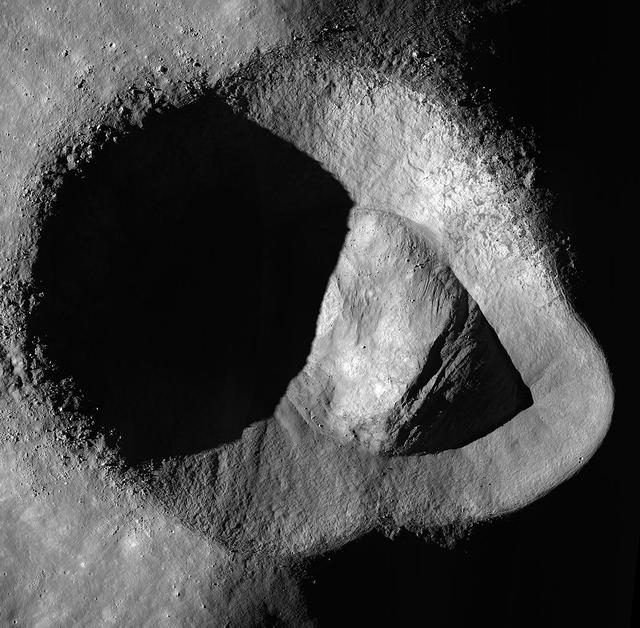
How did the "Ryder" Crater come to be? Amongst the many speculations, the option of "Aliens" Is certainly not out of the question, and alien enthusiasts believe that this mysterious crater is probably the trace of an ancient alien presence on the moon.
However, as we all know, rigorous scientists do not use "Aliens" To explain seemingly unnatural phenomena, so scientists have offered three hypotheses based on natural formations, which we will look at below.
The first hypothesis is that the "Ryder" Crater may have been formed by the successive impacts of two small bodies within a short interval of time, and given the rarity of this scenario, scientists have built on this by suggesting that some small body was about to hit the surface of the moon when it suddenly split itself in half for some reason. The two halves are
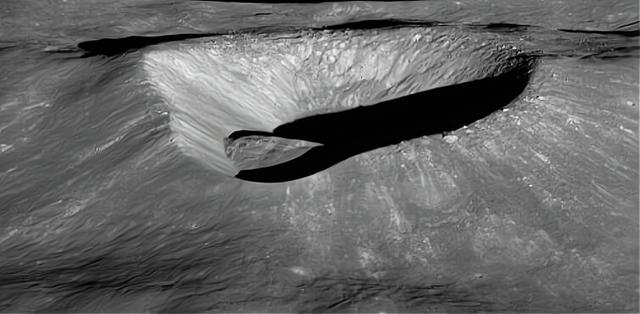
(the image above is an oblique view of crater ryder from the lunar reconnaissance orbiter's narrow-angle camera, oriented from east to west)
The second hypothesis is that if a small object struck the lunar surface at a very small angle (the angle between the trajectory of the small object and the lunar surface), this "Oddly shaped" Crater could have formed on the moon.
The third hypothesis is that the mysterious crater was caused by the topography of the moon's surface. The image below shows the combined data from the lunar reconnaissance orbiter's wide-angle camera and the lunar orbiter laser altimeter, with the arrow pointing to the location of "Ryder" Crater.
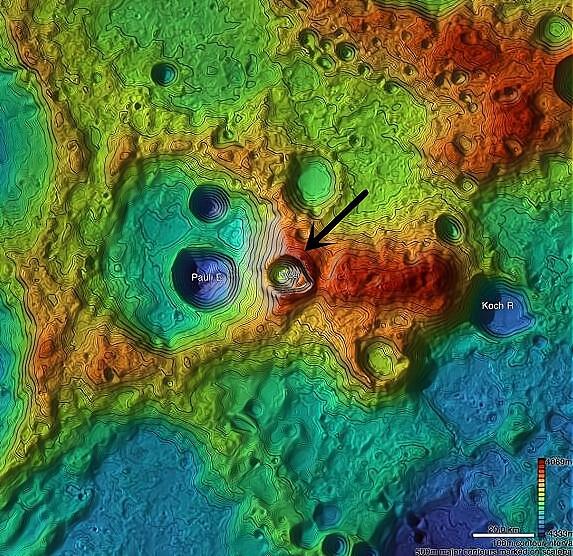
As can be seen, ryder crater is actually located on the rim of a much larger crater. Exploration data shows that this ancient crater is about 70 km in diameter and that its rim rises high above the inner area, with a height difference of about 3 km.
Scientists speculate that the small object that formed 'ryder' crater impacted at the highest point on the rim of this ancient crater, and that the subsequent formation of the crater may have been affected by the steep slope.
We can simply understand that the shape of the 'ryder' crater was supposed to be 'normal', but the topography of its location was so uneven that a 'landslide' of sorts occurred. "This resulted in an unnatural oval shape, and the giant structure in the middle was formed for this reason.
It is worth noting that since none of the individual hypotheses seem to be sufficient to form such a peculiar crater, scientists believe that "Ryder" Crater may have been formed by some combination of the three hypotheses. So what do you think of this crater, which has been called the most mysterious crater on the moon?

